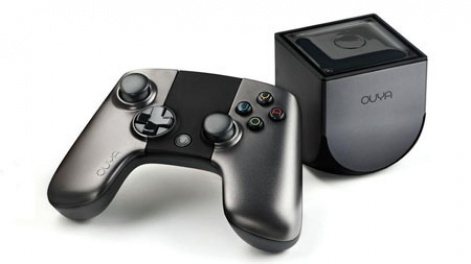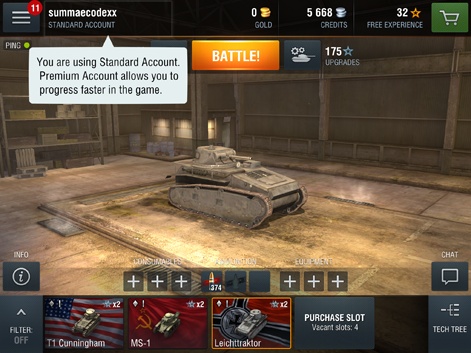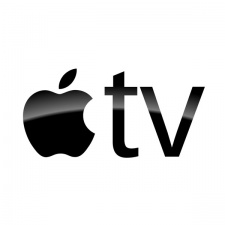Update: In light of Apple's TV announcement, in this week's Friday Flashback takes us back to May 2013.
In this post-E3 opinion piece, editor-at-large Jon Jordan discusses how the industry was then (and still is) changing and fragmenting.
Indeed, it could be argued that until last week, the one area of certainty in the industry were the rumours around an app-focused Apple TV and the failure of Apple to announce anything.
But, other than this, the latest question is has Apple's announcement changed anything?
Being of a philosophical persuasion, I've always been fascinated by the word 'console'.
Outside of games, it's used in very specific circumstances. We console those in difficulties; the sad, the weary, the disappointed, the dying.
It's a powerful verb. We may not materially be changing the circumstances of those individuals but we are bringing them succor.
More than just empathising with them, we are taking on their situation, their grief.
Maybe it's that transformation of psyche which underpinned the repurposing of the verb into the noun used to describe a piece of electronic hardware that sits alongside our TVs, and the controllers we hold in our hands.
The console is a space in which we take on other personalities, live other lives, even if we often find ourselves inhabiting the forms of those in an upwardly powerful arc - marines, space marines, vampire hunters, quarterbacks, generals.
Sony, Microsoft and Nintendo are no longer the only games in town.
Game developers are yet to get around to the sad, the weary, the disappointed...
This world that was
In this parlance, there have been four console companies: the current three - Sony, Nintendo and Microsoft - and prior to 2001, Sega.
They operated very particular businesses.
There was the hardware part - the console, the controllers, various other peripherals. These sat in your living room and dominated that environment, both physically and in terms of mindshare.
PlayStation, Xbox, GameCube, Dreamcast.
And there were the games. Only officially sanctioned product could be sold for these devices. The walls to these gardens were high and the gatekeepers demanded a high entrance fee - for content creators and consumers.

Incredibly as it now seems, some games were only available if you had that particular piece of hardware. The love of gaming was not so much shared as locked up. Still, the rewards in this paradise were great.
Apple just said it's going to let companies make controllers for its phones and tablets.
But this era is now over. Dead and buried as E.T. Atari cartridges in the desert.
The big 'Un'
As Sony and Microsoft's recent announcements - and the hardcore gamers' responses - demonstrate, the next generation of consoles are very different to their predecessors.
Sure, there's still dedicated hardware, controllers and other peripherals. That's about the only thing that is the same.
Now we have always-connected consoles, free-to-play games, streamed games, paid games with in-app purchases, games that work on the console and also mobile or portable devices. Pretty much any developer who's interested can make a game for these devices.
And more widely, Sony, Microsoft and Nintendo are no longer the only games in town.
Indeed, the list of companies who are offering what would have previously been called 'a console' is long and constantly getting longer.

We all know about Ouya, GameStick, Nvidia's Shield, Green Throttle, Wikipad, Razer's Edge, and Bluestack's GamePop, so let's now throw into the mix Unu, MadCatz, a revitalised OnLive, not to mention controller companies such as PowerA (MOGA) and Nyko.
Oh, and this small CA outfit called Apple just said it's going to let companies make controllers for its phones and tablets. Its own controller - part of its wider living room push with Apple TV - won't be far away now.
Let's revisit that "Nope"...
And everyone expects another small CA outfit called Google to do the same for Android.
Let's upgrade our response to a 'Hell, Yeah!'.
Brave new unworld
Obviously, many of these companies won't be successful.
The question is not about the technology. It's about gaining enough consumer mindshare for their products; something Ouya's run-in with the ESA over its un-E3 parking lot show will have been nothing but positive for Ouya and cautionary for the ESA.
And given that E3 2013 has just ended, it's worth pointing out that in the dozen E3 shows I've attended since 2000, this was the least buzzy, despite Sony and Microsoft's announcements.

The fact is that the last big gaming success story to hook into E3's expensive marketing opportunities was Wargaming.
2012's mobile buy-ins such as GREE and WeMade were nowhere to be seen this year, while the gaming companies now making the most money - Supercell, GungHo Online and King - were nowhere to be seen.
You can draw your own conclusions.
Questions
'What Next NOW' was E3 2013's tag. More appropriate would have been the more questioning 'What's Next Now?'.
No one knows the answer, except that shows like E3 - at least in their present form - are becoming irrelevant, and fast.
The unconsole market is not a consoling place, but it is a place teaming with opportunities for those who can make the most of them.
And the same is true for the traditional way of doing business in the gaming sector. The billion-dollar behemoths are being quickly undermined by a new generation of billion-dollar raptors.
Name any big, traditional games company - Sony, Nintendo, Microsoft, EA, Sega, Capcom, Square Enix - and I'll show you a smart company that's scrambling to catch up.
Even new outfits such as Zynga are feeling the burn of being caught out in a sector that measures success by your past month's active players, not your past decade's history.
If scuttlebutt rumours are to be believed Rovio will be next on the drop-off list.
An aside: some giants are thriving in this brave new world. Just check out how Disney, DeNA, Big Fish and Miniclip are performing, while US retailer GameStop is all over the unconsole world.
Bright lights, big opportunities
But the headline point is that - as screenwriter William Goldman (Butch Cassidy and the Sundance Kid etc) said about 1980s Hollywood - "no one knows nothing", and that includes me.
All I can say is that we all have to accept uncertainty, and get comfortable with being uncomfortable.
The unconsole market is not a consoling place, but it is a place teaming with opportunities for those who can make the most of them.
I think we'll even find the freedom to make very different types of games. Maybe even some consoling ones.





















